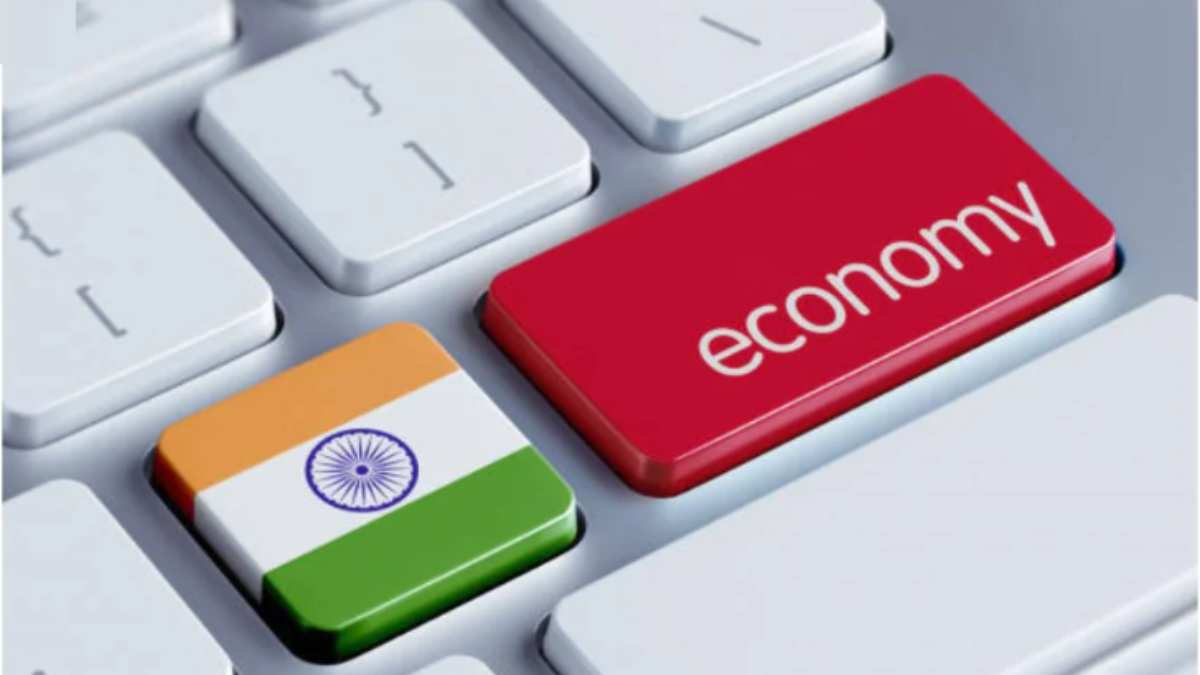


Even while the world faces economic challenges in the face of various waves of Covid-19 pandemic, the International Monetary Fund (IMF) has praised India’s resilient economy while underlining the structural reforms carried out by the government in the recent years. The IMF on Tuesday, however, slashed India’s growth forecast for the current financial year 2022-23 (FY23) to 8.2% from its earlier estimate of 9% in January. However, as per the projections for this fiscal year, India will be the fastest-growing major economy in the world. Further, the IMF, in a statement, said that economic damage from the war in Ukraine will contribute to a significant slowdown in global growth in 2022 and add to inflation.
The IMF Managing Director Kristalina Georgieva lauded India’s well-targeted policy mix that has helped the Indian economy remain resilient in her meeting with Finance Minister Nirmala Sitharaman on Monday (local time) in Washington DC. Georgieva highlighted the
resilience of India which remains the fastest-growing country across the globe despite challenges posed by the Covid-19 pandemic.
Sitharaman had a bilateral meeting with Georgieva on the sidelines of the IMF-World Bank Spring Meetings. The Finance Minister and the IMF MD were accompanied by senior officials like Anantha V. Nageswaran, Chief Economic Advisor and Gita Gopinath, FDMD of IMF, said the Ministry of Finance in an official statement. During the meeting, they discussed several issues currently being faced by the global and the regional economies. Georgieva also referred to an effective policy mix followed by India that was well targeted. She lauded India for its contribution to the capacity development activities of the IMF, the Ministry added in the statement. Explaining India’s policy approach, Sitharaman mentioned that an accommodative fiscal stance was also accompanied by major structural reforms, including the bankruptcy code and targeted help to MSME and other vulnerable sections. Sitharaman said that Monetary Authority fully supported and complemented these efforts with an accommodative stance.
The Finance Minister further stated that India has been helped by good agricultural output, supported by a good monsoon during the Covid-19 pandemic period. Agricultural exports, along with other exports, have also sharply increased. India is entering into new economic activities which will help resolve some of the global supply chain issues, she added.
Georgieva also praised India’s vaccination programme and the help extended to its neighbour and other vulnerable economies. The IMF MD particularly lauded India’s help to Sri Lanka in the face of the ongoing economic crisis. Sitharaman called upon the IMF to support and urgently provide financial assistance to Sri Lanka. The Managing Director assured the Finance Minister that the IMF would continue to actively engage with Sri Lanka, the Ministry stated.
Notably, once the meetings conclude in Washington, Sitharaman will head to San Francisco on 24 April, where she will engage with business leaders and will also interact with the faculty and students at Stanford University. She will depart for India on 27 April.
Meanwhile, Sitharaman, while casting doubts on the uncertain cryptocurrency market in India, said the leading risk around cryptocurrency is its capacity to be used for terror financing and money laundering. Speaking at a seminar of the International Monetary Fund Sitharaman said, “The biggest risk for all countries across the board will be the aspect of money laundering and that of such currency being used for financing terror.”
“I think regulation using technology is the only answer. Regulation using technology will have to be so adept, that it has to be not behind the curve, but be sure that it is on the top of it. And that’s not possible if any one country thinks that it can handle it. It has to be across the board,” she added. Sitharaman emphasized the performance of India in the digital world and efforts of the government to build frameworks of the digital infrastructure over the last decade, highlighting the growth of India’s digital adoption rate during the Covid-19 pandemic.
Sitharaman asserted, “If I use 2019 data, the digital adoption rate in India is about 85%. But globally, it was only somewhere near 64% the same year. So the pandemic time actually helped us to test and prove for ourselves that it is simple to use, common people can use it, and adoption actually was proven.”
(WITH INPUTS FROM BADAR BASHIR)